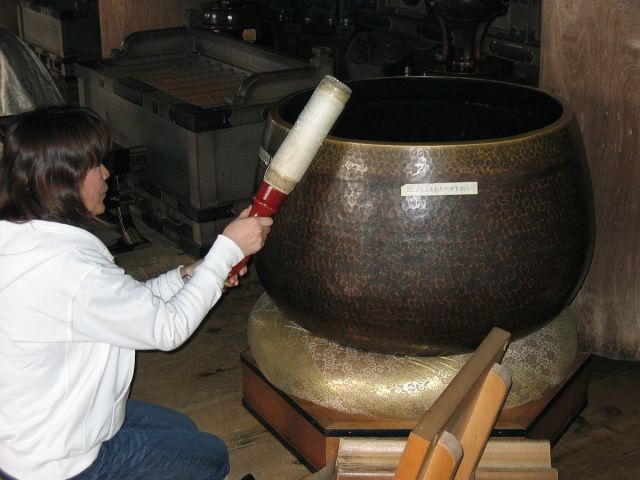
Completa cada frase con la opción correcta
Standing bells originated in China. An early form called nao took the shape of a stemmed goblet, mounted with rim uppermost, and struck on the outside with a mallet. The manufacture and use of bowls specifically for 'singing' is believed to be a modern phenomenon. Bowls that were capable of singing began to be imported to the West from around the early 1970s. They are usually placed on a pillow, to allow the rim to vibrate freely, though small bells may be held gently in the hand.
Alternatively, some bells may be capable of 'singing bowl' operation as a friction idiophone. In this mode, a wooden mallet sometimes called a wand or puja is rotated around the outside rim to excite continuous vibrations in the bowl by the slip-stick mechanism, the principle being the same as that of water-tuned musical glasses. The volume of the continuous note depends on the speed of the mallet and the force that is applied.
Practica tus habilidades de escritura debatiendo las siguientes cuestiones
- How do you call bells in your country?
- What are some of your traditional musical instruments? Have you seen and use them?


 Descargar Google Chrome
Descargar Google Chrome Descargar Mozilla Firefox
Descargar Mozilla Firefox Descargar Opera
Descargar Opera